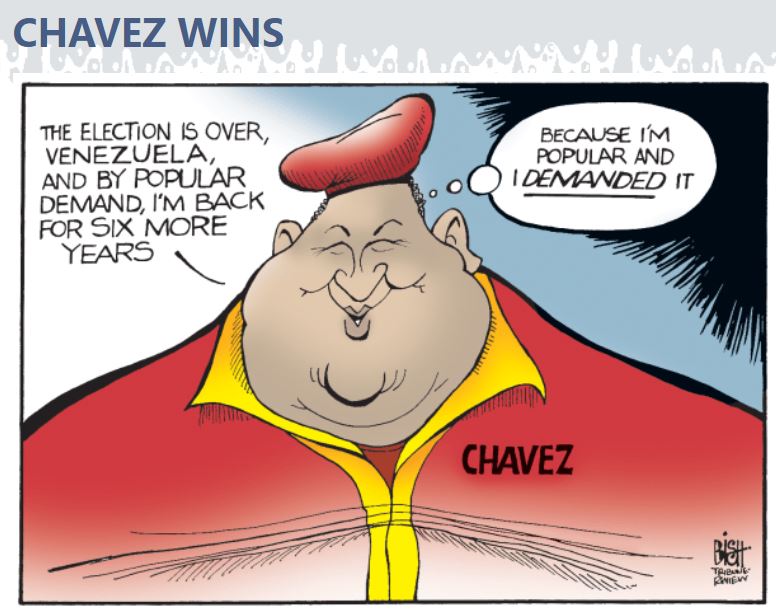
Neocolonialism was seen within the dominant discourse in media and policy mainly in the form of trade and oil. As seen in our research, oil became a central piece to the relationship between Chavez’s Venezuela and the United States. Though the United States critiqued the country and Chavez for his “autocracy,” “militarism,” “government control,” etc, the reliance on oil made it so the United States rarely put their words into political action. Moreover, the discourse in the media saw a spin of certain Venezuelan issues to justify intervention or policies that actively worked against Chavez. For example, election corruption and weapons trade. This saviorism and reliance on oil allowed for the United States to intervene in another country’s politics while using American values and standards as a justification regardless of the hypocrisy of trading with a demonized country.
